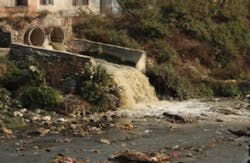Proposed wastewater discharge permits will reduce flow of phosphorus into Spokane River
July 19, 2013
2 min read
NORTHERN IDAHO — Newly-proposed municipal wastewater discharge permits for three cities in Northern Idaho will reduce the flow of phosphorous and other pollutants into the Spokane River, according to a press release.
This action is part of a larger effort being undertaken by Idaho and Washington to protect Spokane River water quality on both sides of the border.
The proposed permits establish strict new discharge limits for total phosphorus, ammonia and biochemical oxygen demand, noted the release.
These limits are necessary to ensure compliance with Idaho’s water quality criteria for nutrients and Washington’s water quality criteria for dissolved oxygen, stated the release.
According to Dan Opalski, director of EPA’s office of Water and Watersheds, the new permits strike a careful balance between economic and community development needs, and long-term water quality protection.
“These are strong, flexible permits,” said EPA’s Opalski. “They protect water quality by reducing phosphorous discharge, but also offer treatment plants the needed flexibility to serve their growing communities. The cities of Post Falls, Coeur d’Alene and Hayden deserve praise for working hard to help craft these permits and prepare their communities to meet the new requirements.”
Read the entire press release here.
About the Author
Sign up for our eNewsletters
Get the latest news and updates
